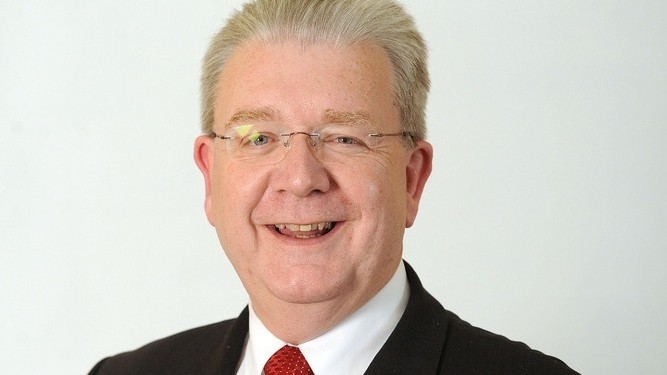MR: In Edinburgh it is particularly beneficial because three colleges have come together into a larger regional college which will have the ability to compete in a variety of ways. Regionalisation essentially is to develop a strategic view of what further education can provide in Scotland. We presently have about 42 colleges in Scotland. That’s quite a lot for a country of our size.
News and business analysis for Professionals in International Education
Have some pie!
Mike Russell, Scottish Education Secretary

We also have a government structure that hasn’t changed in 20 years and arises out of Thatcherite reforms of the early 1990s and doesn’t focus on Scotland as it is today. So what we’re trying to do is focus on learners and learner outcomes, particularly learners’ links to employment. That’s a domestic issue, but the colleges will want to compete for international students as many of them have distinctive offerings, and I’m quite certain that regionalisation will give them a much better mass in order to do so.
“We’ve got four or five of the top 200 universities…in a population of five million people that’s actually unique”
The PIE: What place does the private sector have in Scotland’s international education?
MR: I think given the size of the market, I see no private universities emerging in Scotland. For one to emerge it would be quite a substantial investment which I don’t think would be paid off, so I don’t think there’s a likelihood of private sector providing investment that way. But in others it provides a whole range of things to Scottish universities and colleges – from buildings right through to text books and that’s how it should be.
The PIE: How are Scottish institutions dealing with the UKBA’s immigration policies?
MR: We think the UKBA is not focused on opportunities for Scotland. It’s focused very narrowly on an agenda set by the coalition government which is really focused on what it perceives are the needs of the South East of England. We would very much like to have a different approach, of course our pursuit of independence would include the pursuit of our own migration and immigration policies, and we would want to encourage particularly in the university sector a flow of students.
And a flow of PhD students – that’s a very important subset for the ongoing health of the university sector. All our universities are research universities and it’s about the internationalisation of research. Sometimes it’s very hard to do that with the attitudes of the UKBA.
The PIE: Have post-study work rights been an issue?
MR: In terms of graduate employment, the UKBA is a considerable difficulty. I’m very keen that universities work closely with Scotland and provide employment opportunities. I think that interaction is very positive and I’d welcome that development in terms of putting to the UKBA the open and generous case to ensure we attract students from elsewhere.
“In terms of graduate employment, the UKBA is a considerable difficulty”
The PIE: What other challenges do Scottish institutions face in attracting international students?
MR: Competition is one of them but it’s not just with institutions south of the border, not just England or Wales. There is a worldwide market in attracting international students into higher education and Scotland is part of that. So it has to compete on the basis of price, it has to compete on the basis of quality, it has to compete on the basis of security and a good place to go. For example in China, there’s a strong focus on safety. So it has to compete in that as well. I think we do pretty well on all of those.
The PIE: How else is the Scottish government promoting international education?
MR: There are a number of ways about looking at this. It’s not just about students coming to us its about our students going elsewhere. I have that conversation whenever I’m abroad and I will continue to have that conversation when I’m abroad. I’m trying to encourage that. We’ve funded the national union of students to do some very positive work in it and by extending the Saltire scholarship we take it a step further.
We’re also looking at ways we can support students while they’re abroad. Scottish students from the 17th century onwards have often spent time abroad studying. I’m keen to continue to encourage it.
Still looking? Find by category:


